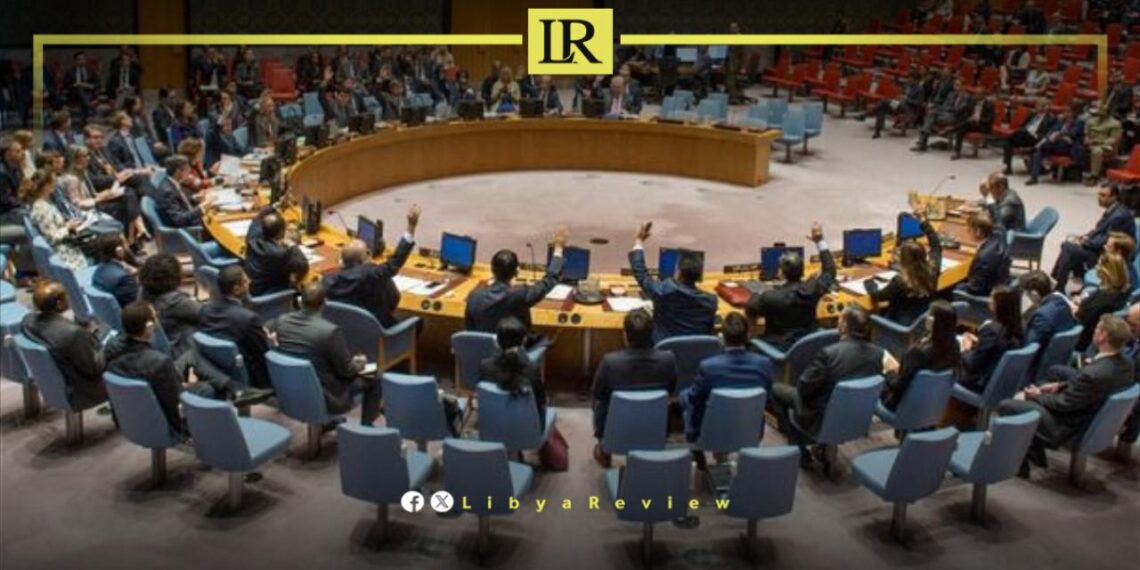On Thursday, the United Nations Security Council (UNSC) approved a resolution to extend the mandate of the UN Support Mission in Libya (UNSMIL) until January 31, 2025, with an option for a further nine-month extension if a new UN envoy is appointed.
This resolution, put forward by the United Kingdom and Northern Ireland, reinforces the Council’s commitment to supporting Libya’s transition toward peace, unity, and democratic governance.
UNSMIL’s extended mandate is critical to facilitating a political process that will enable elections based on the 2015 Libyan Political Agreement, the roadmap created by the Libyan Political Dialogue Forum, and the updated election laws approved by the 6+6 Committee.
With renewed support from the UNSC, UNSMIL is tasked with engaging Libyan stakeholders to address electoral disagreements, encouraging transparency and cooperation, and working to ensure Libya’s elections can take place under effective, widely accepted laws as soon as possible.
The UNSC resolution also calls on Libyan leaders to take concrete steps toward unifying the country’s political, economic, military, and security institutions. A key message is the need for all Libyan parties to preserve the judiciary’s independence, ensuring it remains a foundation for accountability and legal integrity.
The Council commended recent efforts by Libya’s Presidential Council to initiate a national reconciliation process, with additional backing from the African Union.
The UNSC resolution stressed the need for humanitarian aid to reach all vulnerable Libyan communities without obstacles. To aid recovery and reconstruction, the UNSC urged Libyan authorities to make essential funds available transparently, ensuring that Libyans themselves oversee how these resources are allocated.
On the security front, the UNSC reaffirmed its stance against any military solution in Libya, urging all factions to cease actions that could spark renewed violence or destabilize the fragile peace process. UNSMIL’s mandate includes fostering trust-building and dialogue among Libya’s armed groups to de-escalate tensions.
Additionally, the UNSC warned that sanctions could be imposed on individuals or entities that obstruct peace or disrupt elections. All UN member states were reminded of the need to uphold the arms embargo imposed on Libya.
The resolution also renewed the call for the removal of all foreign fighters and mercenaries from Libya, stressing the importance of respecting Libya’s sovereignty, independence, and territorial unity.
Libya’s path to stability has been difficult since the 2011 fall of Muammar Gaddafi. The country remains divided, with rival administrations in the west (Tripoli) and east, each backed by various international powers and local militias.
Years of political and military rivalry have created a climate of instability, challenging the rule of law and stifling economic recovery. UNSMIL, established in 2011, has consistently worked to support Libya’s peace process by brokering ceasefires and fostering dialogue among political factions.


